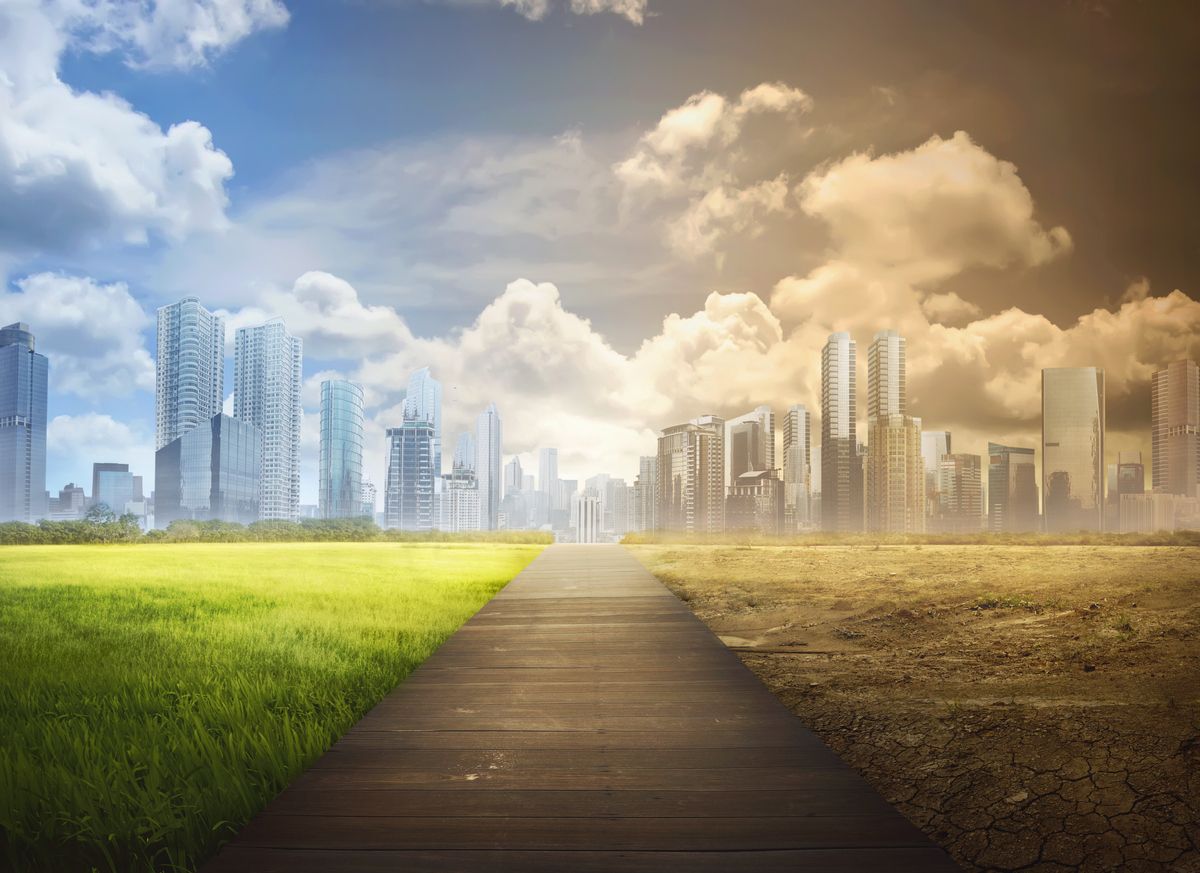
Besides the 3R’s of reduce-reuse-recycle, people should also consider ASI – avoid, shift, and improve
In the casino game of roulette there are eighteen numbered red or black squares, plus a single green square with the number ‘0’. That green square tips the odds in the house’s favour for all bets are forfeited when the ball lands on it, belying the illusion that betting on either red or black represents a 50 percent chance of winning.
The roulette wheel is also analogous to the climate change challenge facing Earth, say SMU Associate Professor of Urban Climate Winston Chow.
“If we use the roulette analogy, and the red squares mean bad weather, you can see the reds occurring more frequently,” he explains, pointing to extreme weather events such as heatwaves (Europe and China), heavy rainfall (Korea), and snow blizzards (Japan) in 2022 alone.
“If the croupier adds more reds to the roulette wheel, it’s akin to us adding more energy to the climate system. This climate roulette wheel is becoming more red-heavy. The odds are no longer in our favour for a steady climate as we are getting more extreme weather.”
Chow made those remarks at a recent masterclass lecture for the SMU Asia Summit 2022 where he highlighted the failure in achieving the Paris Climate Accords goals of keeping mean global temperature rise to below 2C above pre-industrial levels. As it is, we are now at 1.1C above pre-industrial levels, and achieving net zero greenhouse emissions by 2050 is looking increasingly challenging.
While higher temperatures make the already uncomfortable tropical heat even more oppressive, Chow highlights systemic and possibly existential risks for coastal cities.
“If you have a flood or a storm surge affecting a city like Singapore or Jakarta, your energy supply can be damaged if a substation gets hit by the floods,” he notes. “It cascades through your IT systems, your transport systems. Your traffic management becomes compromised, not just land but also sea and air transport, and that affects your supply chain management.
“If this happens every day, people would start thinking, ‘Why should I stay here?’ When people start leaving, tax revenues decrease, and the city begins to decay. That’s a risk we have seen materialise in some African and South Asian cities. The concern is it might happen in East Asian or Southeast Asian cities in the years to come.”
What can be done
Citing his work on the Intergovernmental Panel on Climate Change (IPCC), Chow urges concerted effort towards what the IPCC terms ‘climate resilient development’ (CRD), which involves “ambitious reductions in greenhouse gas (GHG) emissions, deal[ing] with climate risks, stop[ping] biodiversity loss and…improv[ing] peoples’ wellbeing [by] reducing poverty and hunger…and providing more people with clean energy and water”.
Chow points to nature-based solutions such as street trees and park spaces, and social policy such as climate education and land use planning, as being equally effective climate control measures as physical infrastructure in the form of seawalls, sanitation infrastructure, and air-conditioning.
On the topic of reducing GHG emissions, Chow highlights recent COVID lockdowns that have led to a fall in CO2 emissions. Scientists feared a repeat of what happened after the last two major economic crises in 1997 and 2008, when “there was a rapid acceleration of production of goods and services after the crisis was over”.
“The signs suggest it wouldn’t as bad as we feared this time round,” says Chow. “There is strong evidence that we have become more efficient in how we use fossil fuels. There’s a steady downward trend in Singapore, Indonesia, Malaysia, the Philippines, and Vietnam.
“These Southeast Asian countries have decided to become more carbon-friendly in terms of their energy production. We’ve stopped using oil and started using natural gas in Singapore. In Vietnam there’s been a big push towards solar and hydro electricity. Coal use has dropped. The movement is slow but it is happening.”
The drop in fossil fuel usage is in line with the ‘Three-R’ strategy of ‘Reduce, Reuse, Recycle’ which cuts the supply/production of pollutants. In the IPCC, Chow points to an alternative three-letter acronym: ASI – Avoid, Shift, Improve.
He elaborates: “What do I mean by ASI? If you look at transportation, we didn’t have to go to the office since we worked from home, therefore greenhouse emissions that would have occurred from transportation were avoided.
“If we still have to go back to the office, we can shift from driving to taking public transportation. And if we must drive, let’s improve it by using hybrid or electric vehicles instead of internal combustion ones. Combined, this can have significant impact if people do this worldwide.
“We hope that this ASI approach can take over from the three Rs, or maybe complement the Rs, in terms of enabling sustainability.”
Practical concerns
While cutting back on private car usage – internal combustion engines or otherwise – is indisputably good for the environment, practical concerns such as the needs to ferry young children pose policy questions for decision-makers: Should exceptions or concessions be made for those with young children?
“It has been considered but the needs of the many outweigh the needs of the few,” notes Chow, who also has young children. “We have a utilitarian approach in Singapore. The authorities would say, ‘There are other options you can consider.’ It could be car-sharing, which could be a way forward but not for parents of young children.
“The other argument is: Beware the slippery slope. Should preferential treatment be extended to those with elderly parents who need to make frequent visits for medical appointments? There is no easy answer for that.”
Associate Professor Winston Chow was the presenter of the masterclass lecture titled “Climate-resilient Cities of the Future” at the SMU Asia Summit 2022 on 11 August 2022.
Follow us on Twitter (@sgsmuperspectiv)